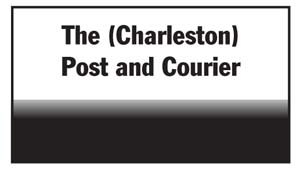SC restaurant program could make it less dangerous to dine out again
South Carolina’s hospitality industry got overtaken by events this past week — in a good way — when three of the state’s largest cities adopted ordinances to require people to wear masks in public,  including in restaurants.
including in restaurants.
We can’t very well keep our masks on while we’re eating, and wait staff have to get pretty close to serve our meals and even to take our orders, so restaurants will always be one of our biggest challenges in the age of COVID-19. Compound that with many restaurants’ refusal to require their staff to wear masks, and we have a recipe for infection — and an invitation for a large swath of customers to keep eating at home, dealing a potentially fatal blow to individual businesses and an entire sector that is a crucial part of our economy and our lives.
We’re hopeful that the mask mandates adopted by the Charleston, Columbia and Greenville councils will make restaurants safer places in those cities, and inspire more people to return to restaurants. Even more, we hope that the mask mandates will help tamp down South Carolina’s soaring infection rate enough that we aren’t forced to follow Texas, where coronavirus hospitalizations jumped so high that the governor had to halt elective surgeries again. So we’re relieved that those cities took the action that Gov. Henry McMaster has declined to take, and we hope other cities and counties will follow suit. Quickly.
Until they do, people who go out to eat elsewhere in the state should follow the governor’s recommendation and patronize only restaurants that voluntarily require their staff to wear masks and agree to follow other basic health and safety recommendations. That should be easier to do thanks to a program Mr. McMaster and the S.C. Restaurant and Lodging Association unveiled last week to help customers locate restaurants that are willing to do more than the law requires to protect their customers and staff.
Unlike earlier voluntary programs in the Charleston, Columbia and Greenville areas that don’t actually require participants to do anything more than “try” to protect customers, the Palmetto Priority pledge requires restaurants to enforce social distancing, disinfecting and mask wearing. Participants will be able to display a Palmetto Priority sticker and be listed on a website (palmettopriority.com) where customers can locate restaurants that are following public health guidelines.
And Palmetto Priority’s additional requirements — all managers must complete a COVID-19 training program and participants must designate one person per shift to enforce hand-washing and sanitation guidelines — make it a useful safety check for diners even in cities with mask requirements. (Well, we hope they will: As of Friday, the list of participating restaurants was marked as “Coming Soon,” and the association hadn’t returned our email seeking an update on its timeline.)
A lot of people, understandably, aren’t ready to return to restaurants, no matter how many safety precautions they’re taking. But this program can be useful when they are, by demonstrating which restaurants take public health seriously as well as which ones care about their employees’ health. And for those people who want to start dining out again if they know restaurants are taking reasonable precautions, this could be just what they, and a struggling industry, need.



























